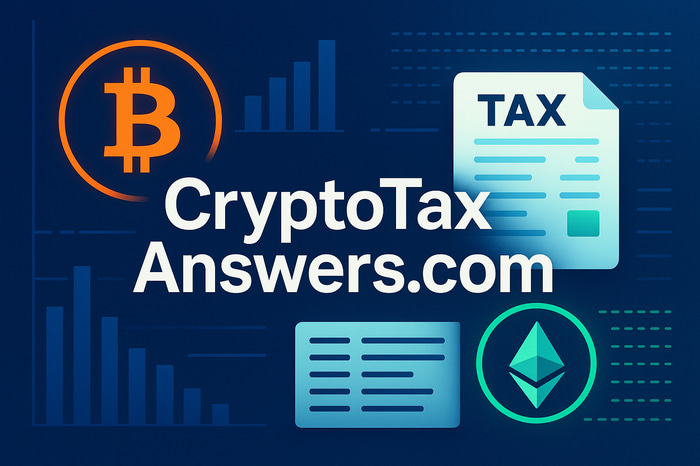5 Crypto Tax Mistakes That’ll Cost You
CTAS
2/27/20253 min read


5 Crypto Tax Mistakes That’ll Cost You
Cryptocurrency is a wild ride—big gains, sudden dips, and a whole lot of excitement. But when tax season rolls around, things can get messy fast if you’re not careful. The IRS has been cracking down on crypto transactions, and even small slip-ups can lead to hefty penalties or audits. Don’t let that happen to you. Here are five common crypto tax mistakes that could cost you big—and how to steer clear of them.
1. Forgetting to Report Every Trade
Think that tiny trade you made swapping 0.1 ETH for some altcoin doesn’t matter? Think again. The IRS considers every crypto transaction—trades, sales, or even using Bitcoin to buy a coffee—a taxable event. If you don’t report it, you’re rolling the dice on penalties or worse.
Fix it: Keep detailed records of every move you make in the crypto space. Use a spreadsheet or a crypto tax software like Koinly to track dates, amounts, and fair market values. It’s a pain, but it beats an IRS notice in your mailbox.
2. Ignoring Airdrops and Forks
Snagged some free tokens from an airdrop or a hard fork like Bitcoin Cash? It’s not “free money” in the eyes of the taxman. The IRS says those coins are income, taxed at their fair market value the moment you get control of them. Skipping this step is one of the sneakiest cryptocurrency tax errors people make.
Fix it: Log the value of airdrops or forked coins as soon as you receive them. Check the price on a major exchange like Coinbase or Binance at that exact time, and report it as “other income” on your tax return. Simple, but easy to overlook.
3. Mixing Up Cost Basis
Your “cost basis”—what you originally paid for your crypto—determines your taxable gain or loss when you sell. Get this wrong, and you could overpay taxes or raise red flags with the IRS. A lot of folks mess this up by guessing or using the wrong method (like FIFO or LIFO) without consistency.
Fix it: Pick a cost basis method and stick to it. First-In-First-Out (FIFO) is the IRS default, but you can also use Specific Identification if you’ve got solid records. Whatever you choose, document it clearly to avoid crypto tax mistakes down the line.
4. Not Reporting Crypto Staking Rewards
Staking is a sweet way to earn passive income, but those rewards aren’t off the IRS’s radar. Just like airdrops, staking payouts are taxed as income based on their value when you receive them. Too many people cash out their staking profits without reporting the initial reward—big no-no.
Fix it: Treat staking rewards like a paycheck. Record the market value when you get them, report it as income, and then track any gains or losses if you sell later. It’s an extra step, but it keeps you compliant and penalty-free.
5. Blowing Off Foreign Account Reporting
Got crypto sitting on an overseas exchange like KuCoin or Binance? If your total balance across foreign accounts hits $10,000 or more at any point in the year, you’ve got to file an FBAR (Foreign Bank Account Report). Skip this, and you’re looking at fines starting at $10,000—or worse if the IRS thinks you’re hiding something.
Fix it: File the FBAR electronically through the BSA E-Filing System by April 15 (you get an automatic extension to October 15 if needed). It’s not a tax form, just a disclosure, but missing it is one of the costliest crypto tax mistakes you can make.
Why Avoiding These Mistakes Matters
Crypto’s decentralized vibe doesn’t mean it’s a tax-free zone. The IRS is watching closer than ever, using tools like Form 1099-K from exchanges to cross-check your returns. Getting hit with penalties, interest, or an audit can wipe out your gains faster than a bear market. Plus, cleaning up a tax mess after the fact is way harder than doing it right from the start.
Final Thoughts
Taxes might not be as thrilling as chasing the next 10x coin, but they’re part of the game. Avoid these five crypto tax mistakes—unreported trades, ignored airdrops, sloppy cost basis, unreported staking, and skipped FBARs—and you’ll save yourself a ton of stress (and cash). Grab a solid tracking tool, stay organized, and maybe even chat with a crypto-savvy accountant if you’re in deep. Your wallet will thank you.
Get in touch
Crytpo Tax Answers. All right reserved. 2025
cryptotaxanswers@gmail.com
Disclaimers: I may earn commissions from affiliate links found on this website.
This is an AI co-created website. No AI were harmed in the production of this website.
CryptoTaxAnswers.com offers general cryptocurrency tax information for educational purposes only. It’s not legal, financial, or tax advice. Laws vary by country and can change quickly—consult a qualified professional for your situation. We’re not responsible for decisions based on this site.
Build your own website with Hostinger
